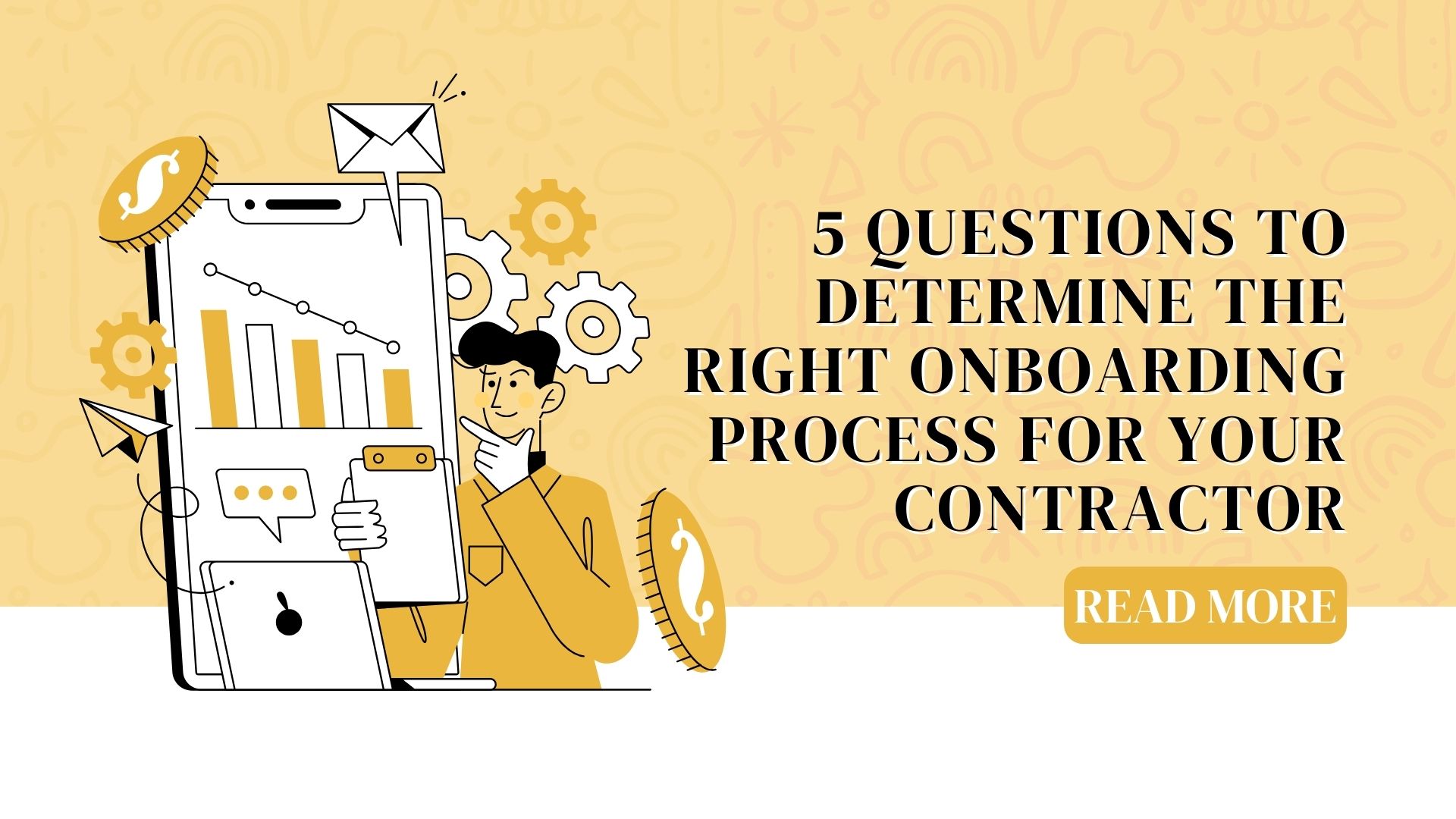When hiring a contractor, one of the first steps is determining the best way to onboard them. This depends on whether they operate as an independent contractor (1099), have their own business entity (Corp-to-Corp), or prefer to be treated as a W-2 employee. Asking the right questions upfront ensures compliance and a smooth payment process.
1. How do they prefer to be onboarded?
Ultimately, some contractors have specific preferences on how they want to be set up in your system.
What to verify:
- How do you like to be onboarded?
Understanding their onboarding expectations helps streamline the process and ensures compliance.
2. Does the contractor have a business entity?
If a contractor has a legal business structure, they may prefer to be paid through their company instead of as an individual.
What to verify:
- Do they have an LLC/Corp that they like to be paid through?
- What type of entity do they have? (LLC, C Corp, S Corp, Partnership?)
- Where is their business registered?
- Is their entity active with the state?
If the contractor operates as a sole proprietor, they’ll likely receive a 1099 directly. If they have an LLC, S Corp, or C Corp, they may prefer to be paid through their business. In a scenario where their entity isn’t active or properly registered, onboarding could be delayed.
3. How do they prefer to be paid?
Payment structure is a key factor in deciding whether a contractor is treated as an independent 1099 worker or needs to be classified as a W-2 employee.
What to verify:
- How are they typically paid?
- Do they have a business bank account?
- Do they typically get a W-2 or 1099?
- Have they been an independent contractor and received a 1099?
If they typically receive a 1099 form, they’re used to handling their own taxes and may prefer direct payments. Opposed to as if they expect a W-2, they may need to be onboarded as a traditional employee.
Additionally, having a business bank account suggests they’re running a legitimate independent business.
4. Do they have the necessary business protections?
Some contracts require independent contractors to carry business insurance to protect both parties in case of liability issues.
What to verify:
- Do they have business insurance? Professional Liability? General Liability? Any other policies
- Does their business have any other employees other than the contractor? If so, do they carry workers’ comp insurance?
Some companies require liability insurance before working with contractors. If said contractors have employees, they may also need workers’ compensation insurance.
5. Do they operate under a DBA (Doing Business As)?
Some contractors work under a DBA (Doing Business As), meaning they use a business name instead of their personal name.
What to verify:
- Do they operate under a DBA?
This matters, as if they use a DBA, payments should be made to their business name, not their personal name. Subsequently, this can impact how contracts are structured and how they’re set up in your system.
Partnering with a trusted EOR is the easiest way to streamline onboarding and stay compliant – so you can focus on hiring the best talent without the risk. If you’re ready to take your recruitment business to the next level, get in touch today.
